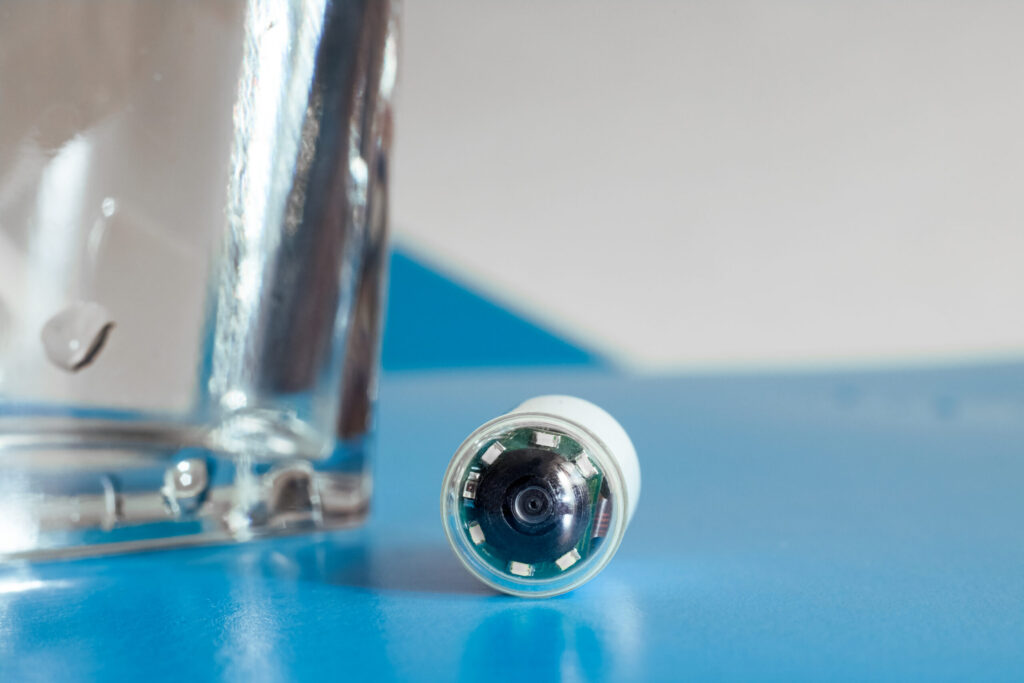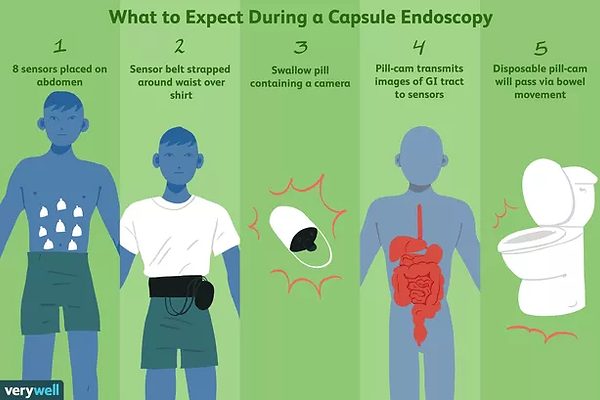Capsule Endoscopy allows your doctor to examine the lining of the middle part of your gastrointestinal tract, which includes the three portions of the small intestine (duodenum, jejunum, ileum). You will swallow a pill sized capsule camera. You might hear your doctor or other medical staff refer to capsule endoscopy as capsule enteroscopy, or wireless capsule endoscopy.
The most common reason for doing capsule endoscopy is to search for a cause of bleeding from the small intestine. It may also be useful for detecting polyps, inflammatory bowel disease (Crohn’s disease), ulcers and tumors of the small intestine.

Preparation for Capsule Endoscopy
An empty stomach allows for the best and safest examination, so you should have nothing to eat or drink, including water, for approximately twelve hours before the examination. Your doctor will tell you when to start fasting.
Tell your doctor in advance about any medications you take including iron, aspirin, bismuth subsalicylate products and other over-the-counter medications. You might need to adjust your usual dose prior to the examination. Discuss any allergies to medications as well as medical conditions, such as swallowing disorders and heart or lung disease.
Tell your doctor of the presence of a pacemaker or defibrillator, previous abdominal surgery, or previous history of bowel obstructions in the bowel, inflammatory bowel disease, or adhesions. Your doctor may ask you to do a bowel prep/cleansing prior to the examination.
What to Expect During a Capsule Endoscopy

Your doctor will prepare you for the examination by applying a sensor device to your abdomen with adhesive sleeves (similar to tape). The pill-sized capsule endoscope is swallowed and passes naturally through your digestive tract while transmitting video images to a data recorder worn on your belt for approximately eight hours. At the end of the procedure you will return to the office and the data recorder is removed so that images of your small bowel can be put on a computer screen for physician review.
Most patients consider the test comfortable. The capsule endoscope is about the size of a large pill. After ingesting the capsule and until it is excreted you should not be near an MRI device or schedule an MRI examination.
What to Expect After a Capsule Endoscopy
You will be able to drink clear liquids after two hours and eat a light meal after four hours following the capsule ingestion, unless your doctor instructs you otherwise. You will have to avoid vigorous physical activity such as running or jumping during the study.
Your doctor generally can tell you the test results within the week following the procedure; however, the results of some tests might take longer.
